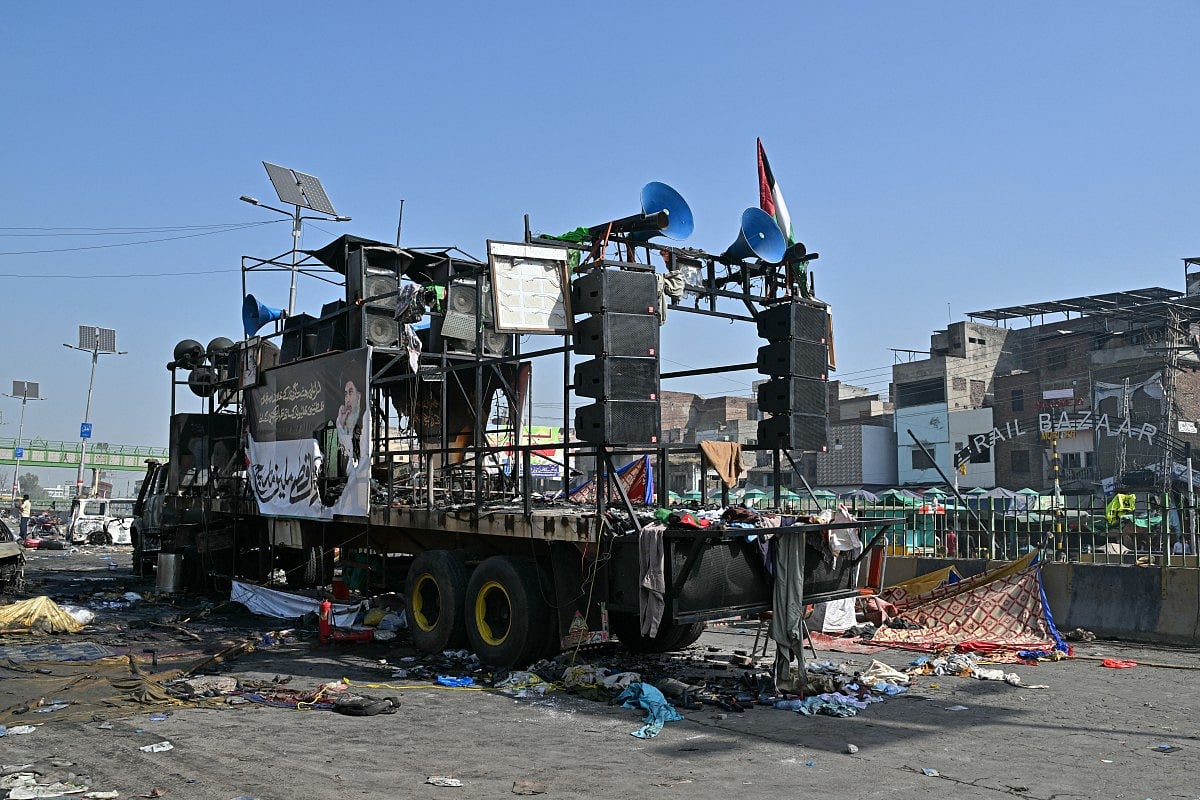Punjab moves to ban TLP; illegal arms holders face 14-year jail
Punjab’s sweeping crackdown targets extremism, illegal arms, and undocumented Afghans

Dubai: Pakistan’s Punjab government has launched an unprecedented crackdown on extremism, illegal arms and undocumented residents, with Chief Minister Maryam Nawaz leading “historic” and “extraordinary” measures to restore order in the province.
In a high-level law and order meeting chaired by the chief minister, the provincial leadership decided to recommend a federal ban on the Tehreek-e-Labbaik Pakistan (TLP) following a spate of violent protests that left multiple people dead, including a police officer.
According to Geo News and Dawn.com, the move marks the toughest action yet against the radical group, which has repeatedly challenged state authority through violent marches and street agitations. Information Minister Azma Bokhari confirmed to Dawn.com that the decisions specifically targeted the TLP, even though the official statement avoided naming it directly.
Crackdown on extremism
The Punjab government said that anyone found inciting violence, spreading hatred, or violating the law would be arrested immediately.
Leaders and workers involved in the killing of law enforcement personnel or damaging state property will be tried in anti-terrorism courts (ATCs), while those at the helm of the party will be placed on the Fourth Schedule of the Anti-Terrorism Act (ATA) — a list restricting the movement and activities of individuals suspected of terrorism or sectarian activity.
The provincial administration will also seize all of the party’s assets and properties, transferring them to the Awqaf Department. All bank accounts and social media handles linked to the group will be frozen or shut down, and its posters, banners, and advertisements banned entirely.
Officials said the clampdown aims to reinforce “the writ of the state and supremacy of the law” after violent clashes erupted during the TLP’s march from Muridke towards Islamabad earlier this week. The unrest left one police officer martyred, 48 injured, and at least four civilians dead, according to police reports.
Key decisions at a glance
Ban on TLP: Punjab to recommend federal proscription under Anti-Terrorism Act.
TLP assets: Properties to be handed over to Awqaf Department; bank and social media accounts frozen.
Criminal trials: TLP leaders and workers to face ATCs for attacks on police and public property.
Illegal weapons: Jail term raised to 14 years, fine up to Rs2 million, offence now non-bailable.
Firearms registration: Citizens given one month to register legal arms; dealers’ inventories to be inspected.
Afghan nationals: Illegal residents to be brought into tax net, database to track undocumented migrants.
Whistleblower system: Public can confidentially report illegal immigrants.
Hard line on illegal weapons
In one of the strongest law-and-order moves in recent years, the Punjab government has stiffened penalties for possession of illegal arms, making the offence non-bailable and punishable by up to 14 years in prison and a fine of Rs2 million.
Citizens have been given one month to register all legal firearms at local service centres, while arms dealers will face stock inspections and a freeze on new licences during this period. The province has also asked the federal government to regulate weapons manufacturers and factories to prevent misuse.
Focus on undocumented Afghans
Another major initiative targets undocumented Afghan nationals living in Punjab. Authorities plan to include them in the tax net and build a real-time database of illegal residents.
A whistleblower system will be introduced to let citizens confidentially report illegal foreigners, while combing operations will focus on unregistered Afghans and their businesses. Those found violating immigration laws will face deportation under federal policy.
The sweeping measures — combining a political clampdown, arms regulation and migration control — mark a decisive shift in the province’s security posture. Analysts say the crackdown signals Maryam Nawaz’s intent to project firm governance and reclaim the state’s authority after months of unrest.
Sign up for the Daily Briefing
Get the latest news and updates straight to your inbox
Network Links
GN StoreDownload our app
© Al Nisr Publishing LLC 2026. All rights reserved.
